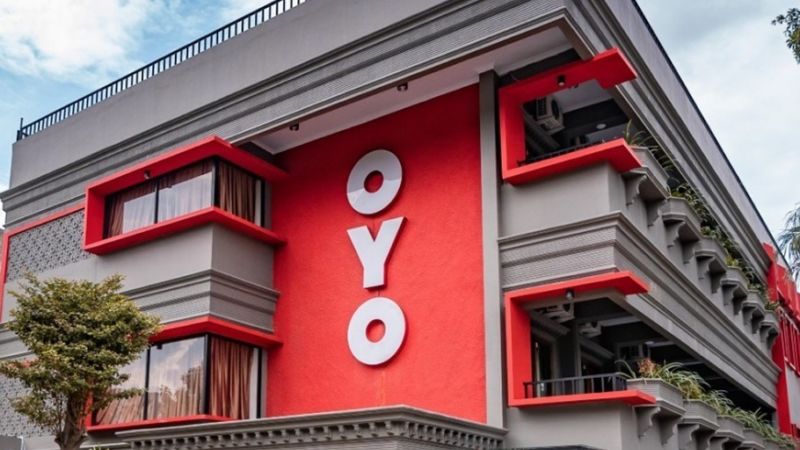In the latest Reuters Newsmaker interview, we speak to Ritesh Agarwal, CEO of OYO Hotels and Homes, about the coming global travel rebound
The past few years have been a turbulent mix of success and struggle for OYO Hotels and Homes, the fast-growing Indian hotel chain started by CEO Ritesh Agarwal in 2013, when he was only 19 years old.
Now 27, Agarwal is a hardened veteran of the internet start-up sprint, having presided over a heady expansion that took OYO from one hotel in 2013 to more than 100,000 properties in 800 cities around the world, primarily in India, Southeast Asia, Europe, and China.
In 2019, with financial backing from SoftBank, OYO had already become the third-largest hotel chain in the world. Heading into 2020, OYO boasted a market valuation of more than $10 billion and an IPO seemed imminent.
Then the pandemic hit.
Room rentals cratered. Franchisees that had been guaranteed extra income began complaining and eventually filed a lawsuit. Thousands of employees were laid off around the world. Franchisees fled, the company’s business ethics were called into question, and global revenue dropped by almost 60%.
The rebound
But that’s all in the past… or most of it, Agarwal says. In a recent Reuters Newsmaker interview, Agarwal was optimistic about the future of OYO Rooms, claiming that bookings in India and OYO’s other major markets were rebounding so fast that they would be back to pre-pandemic levels in a matter of weeks. “Leisure travel is coming back in India,” Agarwal told Reuters associate editor Una Galani. “A week ago, our hotels in Delhi and Mumbai were completely sold out, and it’s hard to find a restaurant reservation. All this has happened in the past month.”

Further, OYO is prepared for the summer travel surge, Agarwal insists, because the company has spent much of the pandemic improving its software, working with its property partners, and investing in the resources necessary to maintain its tidy room standards. “We used the pandemic to get ready for rapid growth as the market comes back,” Argawal says, adding that OYO’s recovery is very much tied to vaccination rates in the countries in which it operates. “What we are seeing now is that in any country with a 40% jab [vaccination] rate, our numbers have grown.”
The high-growth journey
OYO’s business model is to offer operators of budget hotels an amenities makeover and access to the company’s network in exchange for OYO’s control over booking and a presumed boost in occupancy and revenue. Customers book through OYO’s app, and the company charges a commission on each booking.
Until the pandemic hit, OYO’s focus was on expansion — but now, says Argawal, the company is “doubling down” in its major markets and focusing on improving both its partner relations and overall customer experience. Expanding in China and the U.S. is not a priority at the moment, Argawal adds, although earlier in the year the company did open 10 hotels in six U.S. states.
Argawal admits that OYO has had its rocky moments, but says the company’s swift evolution has been similar to other internet unicorns such as Uber and AirBnB, which owns a stake in OYO. “If you look at the journey of any high-growth company, you will never see a straight curve,” Argawal explains. “In the first few years, you see a couple of years of rapid growth, then a year to a year and a half of balancing.”
OYO grew from 2013-‘16 but was relatively “flat” as it consolidated in 2016-’17, Argawal says. From that point until the pandemic hit, the company was focusing on expansion because in the midst of an entrepreneurial push, he says, “you see a market fit and you feel like you have to keep going.”
But Argawal has no regrets about OYO’s meteoric growth. “Upon reflection, our growth could maybe have been more balanced or spread out,” he admits. “But you never know until you’ve done it. The trick is being able to learn from it, acknowledge it, and rapidly improve. And that’s what we’ve been doing.”
Whither an IPO?
As OYO emerges from the pandemic, all that growth and restructuring has of course fueled plenty of speculation about when the company might yet go public. In investment circles, however, OYO has been compared both favorably and unfavorably to WeWork, the failed workspace-sharing startup whose charismatic founder, Adam Neumann, was ousted in 2019 following the company’s infamous IPO flameout. Some investors are concerned that OYO is burning through more cash than it is letting on, but Argawal says the company still has about $800 million in reserve, and is being managed with a future IPO in mind.
“We will consider [going public] at some point in time,” Argawal says. “We have invested in an independent board, and we currently operate as if we were a publicly managed company so that we are prepared when we go public. But the timeline is up to the board.”
The dynamics of an OYO IPO will be interesting. Argawal himself was accused of pumping up OYO’s valuation when, in 2019, he raised $2 billion and engineered an unprecedented share buy-back program that netted him 15% of the company. But in the Reuters interview, Argawal dismisses the idea that he had done anything other than invest in himself and his company. “I wanted to increase my ownership,” he says, because “I have a long-term belief in our mission.”
That investment may pay off handsomely if and when OYO goes public. In the meantime, Agarwal expects the post-pandemic travel surge to fill OYO’s rooms and put the company back on a path to profitability. Business travel is picking up, he observes, and several consumer travel trends — such as staycations, domestic travel, and holiday home rentals — are converging to create plenty of new market opportunities for OYO.
“India as a market is highly resilient, and can bounce back quite quickly,” Argawal notes.
It remains to be seen whether the rest of the world can do the same.






